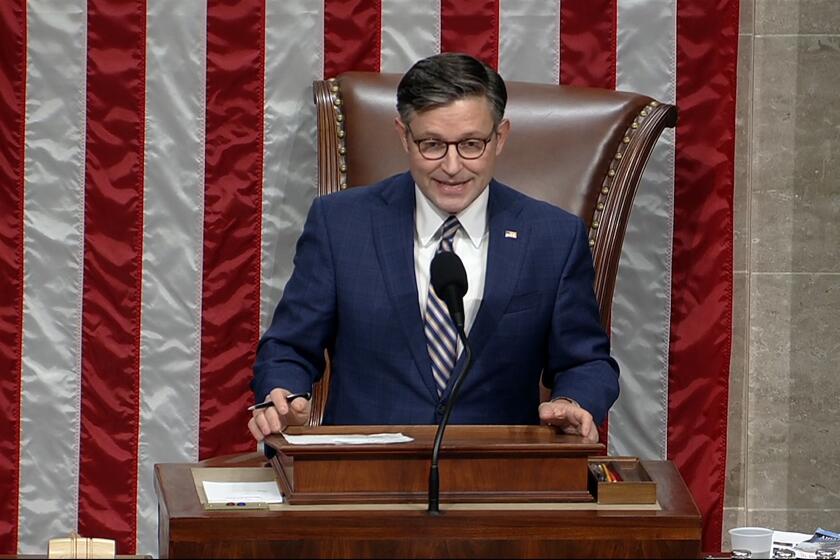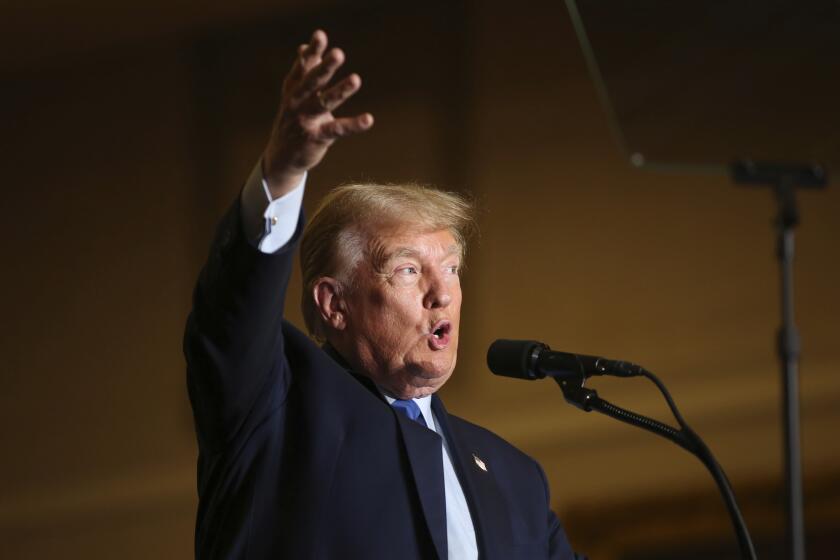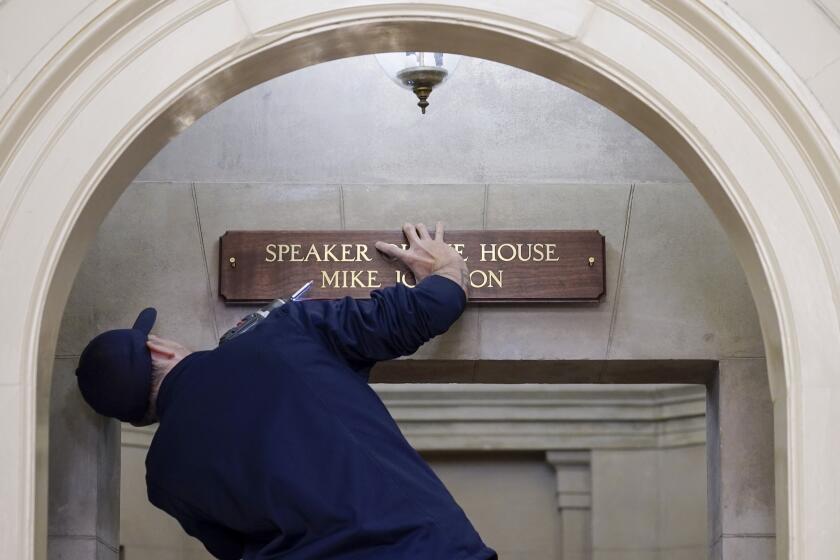Editorial: Will Democrats have to rescue the GOP again to avoid a government shutdown?

A little more than six weeks after Congress scrambled at the last minute to keep the federal government functioning, the country is again on the precipice of a shutdown.
It’s “Groundhog Day” Washington-style, but it’s anything but funny. The current crisis likely will be solved the way the last one was, by Democrats in the House coming to the rescue of a Republican speaker who faces opposition from extreme elements within his own party.
Speaker Mike Johnson and his fractious Republican majority in the House won’t govern. Too bad the country can’t fully function until they do.
On Tuesday the House is expected to vote on a stopgap funding proposal by House Speaker Mike Johnson, the once-obscure Louisiana Republican who was elevated to the speakership after the defenestration of Kevin McCarthy.
Johnson’s plan, while needlessly gimmicky, has the virtue of continuing funding for government without new cuts or poison pills. Because the measure is being proposed under a suspension of House rules, approval will require a two-thirds majority. This plan may be the only way to avoid a shutdown that would hurt all Americans, national security and hundreds of thousands of federal workers who would be left without paychecks.
The former president used ugly Nazi-like language to foul Veterans’ Day and dishonor a long line of Americans who fought and died for their nation. It should not be brushed off as Trump being Trump.
At a time of divided government, it might seem obvious that the people’s business should be conducted on a bipartisan basis. But after McCarthy relied on Democratic votes to forestall fiscal calamity, he lost the speaker’s gavel. Johnson might avoid McCarthy’s fate in the near term, but like his predecessor he must worry about a small number of malcontents in his conference who exercise disproportionate influence.
Ideally, Congress would appropriate funds in an orderly process, without recourse to the stopgap funding measures known as continuing resolutions. Congress tried to enforce discipline on itself when it approved legislation suspending the debt ceiling. That measure included a mechanism that would trigger cuts in spending if the government was still operating under a continuing resolution in January, although the reductions wouldn’t kick in if Congress passed full-year appropriations before April 30.
If there was any hope that the GOP would steer toward sanity and distance itself from the Trump sideshow, that hope is gone with the election of House Speaker Mike Johnson.
Congress still has time to do its job and fund the government according to “regular order,” but in the meantime it must act to ensure that there is no shutdown. Johnson has proposed a “laddered” continuing resolution — meaning that funding for some parts of the government would continue until Jan. 19 while for others the deadline would be Feb.2.
After Johnson unveiled the plan the Biden administration criticized it, with White House Press Secretary Karine Jean-Pierre calling it “just a recipe for more Republican chaos and more shutdowns.” But on Monday, President Biden avoided saying that he would veto the Johnson plan. And some congressional Democrats have been more positive about it.
The top priority now for both parties should be to keep the government open and ensure that paychecks continue to flow to federal workers. That doesn’t prevent Democrats from arguing to voters that Republican infighting means that Democrats will need to help prevent the shutdown, as they did in September.
What we’ve witnessed this year is that GOP control of the House has been a disaster. What to do about that will need to be answered by the voters in 2024.
More to Read
A cure for the common opinion
Get thought-provoking perspectives with our weekly newsletter.
You may occasionally receive promotional content from the Los Angeles Times.













